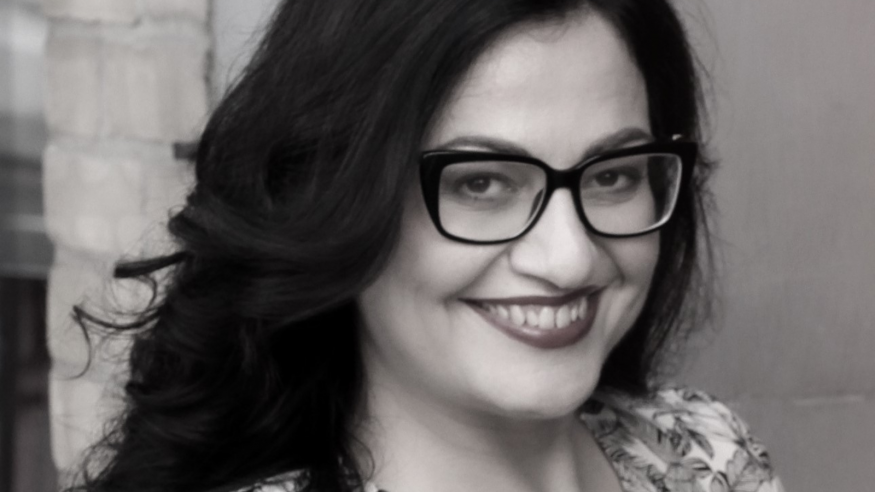Meet the researcher – Dr Katerina Kaouri
12 April 2024
Dr Katerina Kaouri is an expert in mathematical modelling within the School of Mathematics. We asked her a series of questions to find out more about the person behind the research and how she is helping to make a difference to society:
1) What is your main area of research?
I am a mathematical modeller – I use maths to depict and predict real life. Over the years I have developed models for diverse challenges. Models are solved using pen and paper but most frequently using the computer to generate simulations. I focus on biomedical challenges, particularly on: 1) prevention and mitigation of future epidemics 2) fertilization and embryogenesis. I do research in collaboration with other disciplines, governments, companies and society. I am also the departmental Director for Impact and Engagement – I oversee how as a school we can increase our collaborations with external partners and maximise our research impact.
2) Why did you become a researcher/academic?
I love solving problems. Through a Commonwealth scholarship, I moved to the UK and studied maths at Cambridge University; I realised then that I am more interested in Applied Maths. Subsequently, in the MSc in Mathematical Modelling and Scientific Computing at Oxford University, with classmates, I developed models for real-life challenges. I loved doing maths collaboratively and stayed on for a DPhil, modelling sonic booms from supersonic aeroplanes, as a member of a large team of researchers across Europe, funded by AIRBUS and EU. After some postdoctoral research I moved to industry but eventually returned to academia as I missed research.
3) Is there any particular aspect of your research that you would like to highlight?
In the past year, I have been building the InFer network Fertility: In Vitro, In Silico, In Clinico (with Dr Thomas Woolley), with funding from the GW4 alliance (Bristol, Bath, Cardiff, Exeter universities). This network brings together modellers, data analysts and AI researchers with experimentalists, embryologists, and clinicians, to improve the stagnating success rates of In Vitro Fertilization (IVF) treatments. Another exciting project is the development of a model and a user-friendly app for policymakers, in collaboration with Cardiff Architecture. The app will enable policymakers to quickly assess and mitigate disease spread, e.g. in classrooms, care homes and supermarkets.
4) What are the next steps for your research projects?
I will continue working with experimentalists and clinicians to develop models that may reduce the need for more animal experiments and inform clinical interventions. One goal is to expand the inFer network on IVF to an international interdisciplinary, academia-clinic community, to collaboratively solve open challenges, increase IVF’s success rates, and “democratize” it. I will also continue developing models and tools for future epidemics to inform the design of “infection-free” buildings and policy. New challenges usually emerge while talking with researchers from other disciplines and with companies so who knows what the future entails!
5) Does your research have global impact?
All challenges I am working on are helping people across the globe. For example, with a PhD student, co-funded by the London Women’s Clinic, we developed a model for the embryo’s temperature, and shown that when the embryos are placed (by the embryologist) on the freezing device their number and arrangement does not matter; this saves the clinic time. Also, with another PhD student and experimental collaborators I work on elucidating Spina Bifida – when a baby’s spine does not develop properly. Our models capture how the biochemistry of the embryos affect the forces involved in the closing of the spine.
6) What has been your greatest achievement as a researcher?
In 2020 I won a Welsh Government Tackling COVID-19 grant and led a team of researchers working on transmission of SARS-CoV-2 indoors (in collaboration with Oxford University). This was a busy time since we also had to switch to teaching online. I was subsequently invited and actively participated in the Technical Advisory Group of the Welsh Government, where as a member of an interdisciplinary team, I formulated policy recommendations. I subsequently joined forces with other researchers in the school working on pandemic modelling. My epidemic modelling work led to getting shortlisted in the Cardiff Celebrating Excellence Awards this year.